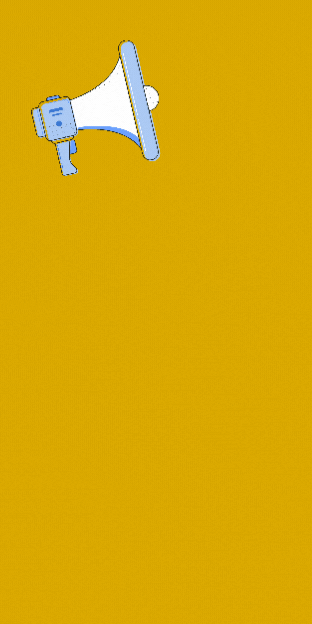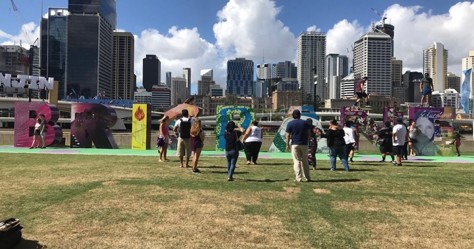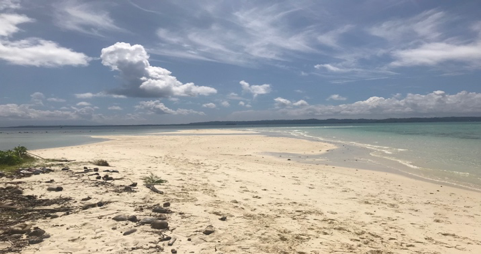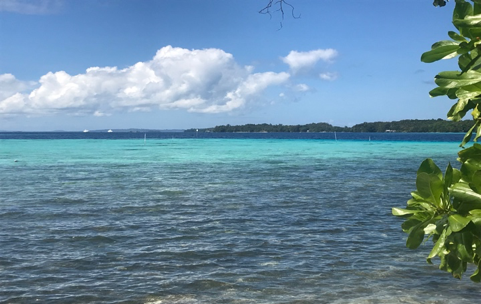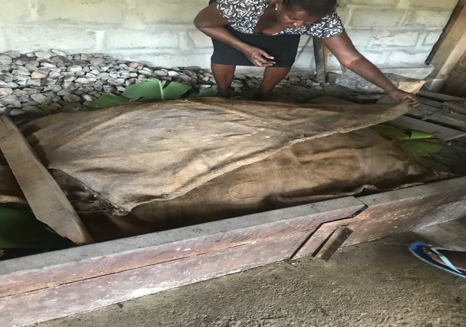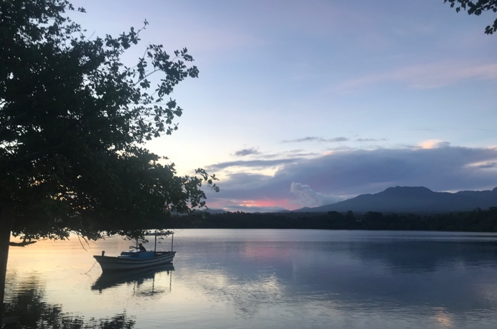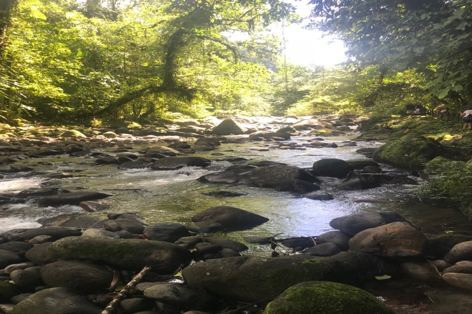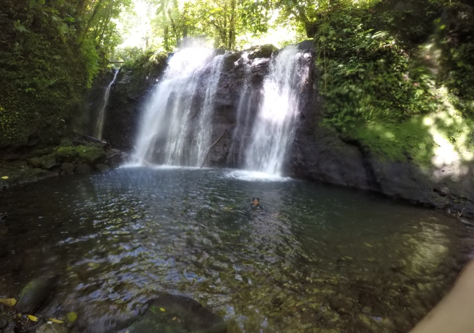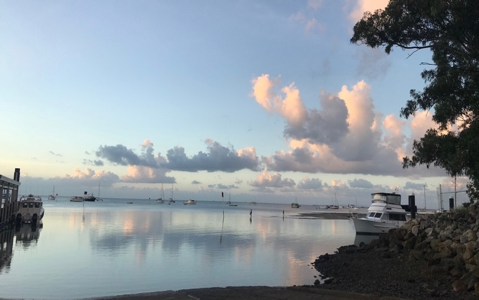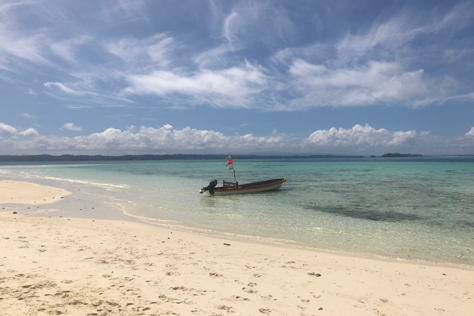
Q: What made you decide to study abroad? Why did you choose your program?
A: I decided to study abroad because I wanted to grow as a person. I wanted to step out of my comfort zone and get a better understanding of how big the world is and experience how other people live. I was immediately drawn to my specific program because of the research opportunity that was available while in the Solomon Islands. I was interested in experiencing life in a developing country and wanted to see first-hand how people live and deal with issues of public health on an everyday basis.
Q: What was the highlight of your experience?
A: The highlight of my experience was my whole time in the Solomon Islands. In the Solomons I met the nicest people I have ever met in my life, got to get a feel of the country's rich culture, was able to eat some of the best food I have ever eaten and got to see what it is like to live in a developing country. It was very eye opening and humbling to be there and this is something I will be able to carry with me for the rest of my life. Every day in the Solomons was a new adventure and there were always unexpected twists and turns, but this is what made my experience great.
Q: What was your greatest challenge and how did you overcome it?
A: My greatest challenge was life in the Solomons. I did not know what to expect when I first arrived, but once I got there I realized how difficult living is compared to life in America. A few places we visited in the Solomons were more developed than others, but everywhere we went was nothing like what I was used to. With very limited clean water supply, few places with access to restrooms and handwashing stations along with the culture shock, my stay in the Solomons was difficult at first. I was able to overcome this by tackling the issues as they came. I tried not to stress too much because I knew if the locals can make it for as long as they have lived there I know there are ways that I can make it. I found things came easier after getting close to the locals. I made a lot of friends during my time here and anything I needed someone was always there to help.
Q: How did the coursework compare to UCM? What coursework did you take while abroad?
A: The coursework was challenging in comparison to UCM. The reason being because the program was on a quarter system so in our first part of my program I was in Australia taking three courses. These three courses were to be completed in a little under two months before we left for the Solomons. Due to the short amount of time all the work was compressed and there were quick turnarounds for exams and assignments. Although this was the case, the material was not difficult rather it was more fast paced than what I am used to which made it challenging. While I was in the Solomons we took one course, but this course was a capstone research project and I focused mine on water quality. With this course I gained valuable tools about hands-on research and I was also able to communicate my findings to community members in order for them to make adjustments in their community. This course was nothing like I have taken at UCM so it was nice to get the experience.
Q: What did you get out of your study abroad experience?
A: I got a lot out of my study abroad experience. First, I was able to realize how fortunate I am to live in a developed world. Some of the things I experienced I never thought I would have to deal with. For example, I never had to worry about drinking water or having somewhere to wash my hands or use the restroom. Also, getting to talk to the locals and gaining a better understanding of everyday life there made me understand how fortunate I am. Second, this experience made me realize how big the world is. It was shocking to see people living the way they do and see how they overcome these disparities. It was humbling to live their lives for a few weeks. Lastly, I feel I grew a lot as a person. As mentioned earlier I did not know what to expect initially so jumping right into it all forced me learn to adapt quickly.
Q: What advice would you give to a student considering study abroad?
A: Study abroad is a once in a lifetime opportunity and I highly recommend it. This gives students an opportunity to experience life and school somewhere else and it is really valuable for personal development. I learned a lot about myself and it gave me a piece of mind on how different people live and how they make things work. It is a chance for growth and this opportunity should not be passed on. Yeah it may seem overwhelming, but at the end of the day it is a life changing experience.
Q: Describe a typical day for you abroad.
My experiences were very different in both countries.
In Australia: I would wake up, make breakfast, bike to the University, attend classes, bike back home and get ready for dinner. After dinner I would do my readings or other various assignments we had to do. If I had nothing to do I would either hangout with my roommate or hangout with the kids at my homestay. Typically I would have 2-3 classes a day and this would take up the majority of the day.
In the Solomon Islands: Everyday was different depending on where we were but typically we would wake up, eat breakfast, get ready for the day and when we found out what we were going to do, we either hopped on a boat to go somewhere, walked or rode in the back of a truck to our destination. We would spend the majority of the day out doing different things like hospital visits, exploring, hiking, snorkeling, swimming, conducting research or hanging out with our homestay families. We would either head back to our hotel/homestay/lodge for lunch or get lunch while we were out. We always met back for dinner. After dinner we would do our assignments or readings and if we didn't have any or finished early we had the nights free to do whatever we wanted.

